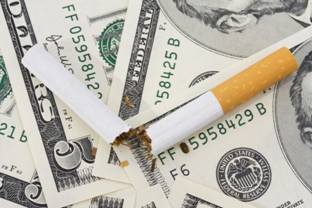Which is More Successful in Smoking Cessation Programs: Rewards or Penalties?
 A study that asked this very question, conducted by Dr. Scott Halpern, deputy director of the Center for Health Incentives and Behavioral Economics at the University of Pennsylvania School of Medicine, found “many more people agreed to sign up for the reward program, but once they were in it, only a small share actually quit smoking. A far smaller number agreed to risk the penalty, but those who did were twice as likely to quit.”
A study that asked this very question, conducted by Dr. Scott Halpern, deputy director of the Center for Health Incentives and Behavioral Economics at the University of Pennsylvania School of Medicine, found “many more people agreed to sign up for the reward program, but once they were in it, only a small share actually quit smoking. A far smaller number agreed to risk the penalty, but those who did were twice as likely to quit.”
Researchers assigned a large group of CVS employees, their relatives and friends to different smoking cessation programs. The team used “theories about human decision making that have been developed in psychology and economics departments over several decades and put them into practice with more than 2,500 people.”
Findings indicated that offering incentives was far more effective in smoking cessation than the traditional approach of giving free smoking cessation help, such as “counseling or nicotine replacement therapy like gum, medication or patches.” The research team also found that requiring a $150 deposit that would be lost if the person failed to quit smoking cigarettes for six months nearly doubled the chances of success.
At the study’s conclusion, “more than 80 percent of smokers in the most popular pure rewards group were still smoking at the end of the study. Even so, researchers say, their success rate was far greater than for those who got the traditional treatment.” This result signaled to researchers that there could be “substantial public health benefits in offering financial incentives.”

